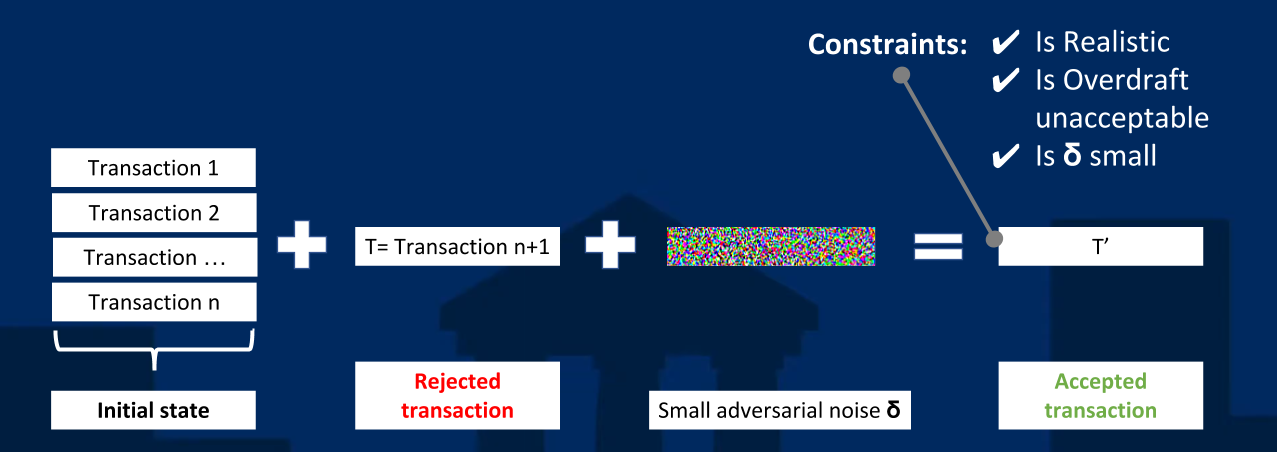 Overview of CoEvA2
Overview of CoEvA2
 Overview of CoEvA2
Overview of CoEvA2
Credit scoring systems are critical FinTech applications that concern the analysis of the creditworthiness of a person or organization. While decisions were previously based on human expertise, they are now increasingly relying on data analysis and machine learning. In this paper, we assess the ability of state-of-the-art adversarial machine learning to craft attacks on a real-world credit scoring system. Interestingly, we find that, while these techniques can generate large numbers of adversarial data, these are practically useless as they all violate domain-specific constraints. In other words, the generated examples are all false positives as they cannot occur in practice. To circumvent this limitation, we propose CoEvA2, a search-based method that generates valid adversarial examples (satisfying the domain constraints). CoEvA2 utilizes multi-objective search in order to simultaneously handle constraints, perform the attack and maximize the overdraft amount requested. We evaluate CoEvA2 on a major bank's real-world system by checking its ability to craft valid attacks. CoEvA2 generates thousands of valid adversarial examples, revealing a high risk for the banking system. Fortunately, by improving the system through adversarial training (based on the produced examples), we increase its robustness and make our attack fail.
Our technical paper tackles how to generate successful adversarial examples for real industrial systems. We show that state of the art adversarial attacks fail to actually fool a constrained machine learning model and propose a novel algorithm, CoEvA2, to generate strong adversarial attacks than can also be used to defend against future attacks.
Our paper in less than 2 minutes.
The full 17 minutes long presentation.